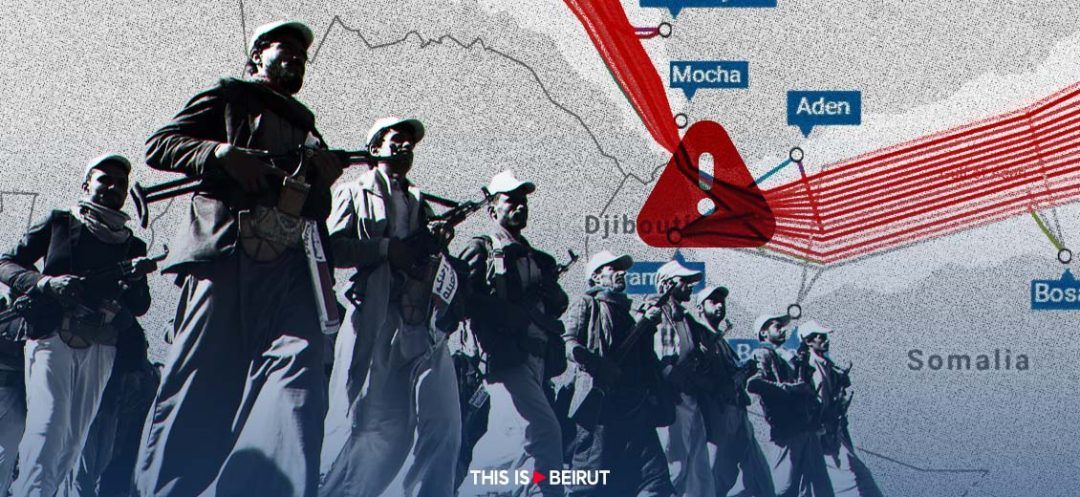- Home
- War in the Middle East
- Houthis Threaten Global Internet Traffic

In the forefront of attacks on maritime traffic in the Red Sea since October, the Houthis are a cause for concern in terms of their ability to target telecommunication cables. This threat is being taken seriously by the Yemeni government and the local telecom agency.
Nothing seems to deter the Houthis from continuing their attacks on various ships and disrupting global maritime traffic, despite regular punitive strikes by British and American forces. Carried out under the pretext of supporting the Palestinian people, the armed Yemeni group's campaign could target significant telecommunication cables located under the Red Sea and paralyze a substantial part of the global internet.
The alert came from the Gulf International Forum, which refers to a message published on December 24, 2023, in a Telegram channel affiliated with the Houthis. The message includes a map of the region displaying the locations of various submarine cables crossing the area and transiting through the Bab el-Mandeb Strait. This strategically important location for international trade, connecting Europe to Asia, is situated between Djibouti and Eritrea on the African side and Yemen on the Arabian Peninsula side.
Catastrophic Scenario
"There are maps of international cables connecting all regions of the world by sea. It seems that Yemen is strategically located, since the Internet lines connecting entire continents — not just countries — pass nearby," reads the message published on this non-official Houthi Telegram channel. The UN-recognized Yemeni government has asserted that it is taking the threat seriously, as has Yemen Telecom, the local telecommunications agency.
This scenario would be catastrophic if it were to occur, as the fifteen undersea cables beneath the Red Sea provide internet access to between 17% and 30% of the world's population, equivalent to the data of 1.3 to 2.3 billion people. Another significant risk is the $10 trillion worth of financial transactions processed daily by these cables. In other words, the Houthis possess a far more dangerous weapon in the eyes of the world than any missile aimed at a ship.
Less than 100 Meters Under the Sea
The credibility of this threat is due to the fact that some of these cables are located less than 100 meters below sea level. In 2013, three Egyptian divers managed to sever one of them, located north of Alexandria. That incident reduced the country's internet bandwidth by 60% and highlighted alarming security flaws.
According to analysts from the Gulf Security Forum, "the Houthis have retained the ability to harass surface ships with missiles and fast-attack craft, but do not have the necessary submarines to reach the cables." They added that if the cables had been spared so far, it was mostly "due to the technological underdevelopment of the equipment in the possession of the Houthis rather than to a lack of motivation."
After a new round of strikes by the coalition of British and American forces on Houthi targets, the Houthi rebels have once again vowed to retaliate. "We will respond to escalation with escalation," warned Nasr al-Din Amer, a spokesperson for the organization, on Saturday, February 4.
Read more




Comments